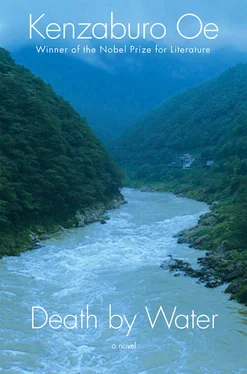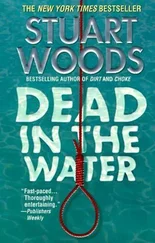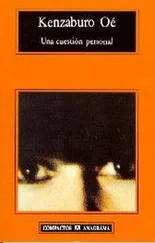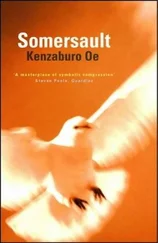“Anyhow, Mr. Koga was saying he would like to talk things through with Unaiko, as a more peaceable alternative to taking this matter to court. However, Unaiko stood firm, saying that because she had already met with Mrs. Koga to no avail, there was no point in trying to set up an amicable meeting with her uncle. It wasn’t Mr. Koga himself but rather his two associates here who said, ‘Well then, we’ll just have to take matters into our own hands to make sure the two parties get together, face-to-face.’ From Unaiko’s perspective, this is a meeting she was forcibly compelled to attend. The thing is, if this gathering were to go smoothly and yield a positive result, the legal dogs could be called off and everyone would benefit, so let’s try to make it work.”
Pushing aside the heavy curtain, the two young men whom I had identified as farmers cleared some space among the jumble of papers on the table and set down a carton filled with cookies and sweet rolls, along with paper cups and individual plastic bottles of water. Then they left the room. The ancient curtain had been effectively muffling the noise of the storm that had begun to rage outside, but for the short time the door was open, the sounds of the pouring rain and the gale-force winds roaring through the forest were clearly audible. When Asa and I stopped off at the Forest House before driving up here, I had added Akari’s noise-canceling headphones to the other supplies in the Boston bag and that, I reflected now, had been a good impulse. He hated the sound of stormy weather.
“Well then, let’s get started,” Daio said authoritatively, handing me a marked-up copy of the script. “Before you arrived, Mr. Choko, the parties who gathered here earlier — well, Unaiko was dragged here under duress — but at any rate, this group has already spent some time discussing the problems at hand. From Unaiko’s standpoint, this radical and potentially scandalous section of her play is a necessary inclusion, while if we look at it from Mr. Koga’s point of view, the only question is whether the offending portion should be expunged completely, or just heavily revised. Leaving it intact is not an option.
“Actually, I should have said ‘sections,’ since there are two of them. Let’s take a look at the first sticking point, which talks about the relationship (if that’s the proper term) between the uncle and his niece. I must say, I was surprised when Unaiko said right off the bat that she would be fine with deleting the section entirely. In the script, all the disputed parts have been circled in red felt-tip pen, and Unaiko said, ‘Sure, go ahead and delete the whole scene.’ According to her, since the entire segment was going to be removed, it was simply a matter of cutting. There would be no need to tailor the scene in question. Anyhow, the point is, Mr. Choko won’t have to go to the trouble of revising the script to ensure that the deletion doesn’t affect the overall literary style, or flow, or whatever.”
While I was inspecting the red-lined alterations, Mr. Koga was staring in my direction, and I got the distinct sense that he was inspecting me. He waited until I had finished reading over the disputed scenes, and then he spoke.
“Since Unaiko has agreed that this section should be deleted, there’s really no need to discuss it in any detail,” he began. “However, what still gives me pause, Mr. Choko, is the fact that you had apparently signed off on this inflammatory scene, and if we hadn’t intervened it would actually have been performed on a public stage. I mean, I just … you and I are from the same generation, and as someone who has been reading your work since I was young, I honestly don’t think the scene we’re talking about is a worthy representation of the prose style of such an eminent author. I thought including it would be rude to the author and might even have an adverse effect on his literary reputation, so that’s why I asked Unaiko to delete it.” Koga made this blatantly manipulative and disingenuous claim without batting an eye, then continued: “However, my wife seemed to feel there was some deep malice concealed in this scene, with the express intention of exposing our family secrets and making me look bad.”
He paused to take a deep breath, then said, “Unaiko has invited me to attend the performance tomorrow night, and she seemed to be hoping that at some point a confrontation would take place between me, in my seat in the audience, and her up on the stage. I gather that’s the way the dog-tossing approach to theater works. As I understand it, first Unaiko would present the details of my so-called crime against her, and then I would give my side of the story. Unaiko would respond by summoning two actors who had been waiting in the wings (dressed in costumes from the seventeenth century, like the two characters in the famous TV series Mito Komon whose names and personas they’ve borrowed for their comedy act) to join her at the front of the stage. And then she would give the order: ‘Suke, Kaku — show the audience what you’ve got.’ One of the men would be holding a stick with a plastic bag attached to the tip, which I’m told was going to be crammed full of dirty laundry (quite literally) and other unspeakable things. Beating the floor with the other end of the stick, the two actors would try to intimidate me, saying, ‘You can’t look away this time.’ Not to put too fine a point on it, Mr. Choko, but I was surprised and, quite frankly, disappointed to hear that you had given your approval to the gratuitous inclusion of such a lurid scene in the final version of the script.”
“The addition was meant to be inserted as a secondary scene,” I replied. “It was just an improvised attempt to imagine what might have transpired between you and Unaiko if a hypothetical defamation-of-character case were being tried in court with forensic evidence.
The young actors were going to be in costume (and in character) as their alter ego duo — inspired, obviously, by the TV show we all know so well. Since you’ve been talking about suing for slander, Mr. Koga, in this imaginary court of law you would be giving the plaintiff’s testimony while Unaiko conducted the cross-examination. That was the concept behind the skit, which arose naturally out of improvisation. What you’re saying is true, though: I did indeed sign off on the addition to the final draft of the script.”
At this point, Unaiko spoke up. “In the scene we’re discussing, the usual ‘dead dogs’ were going to be replaced by plastic bags filled with things that really could have been considered admissible evidence in a court of law, if the lawsuit you’ve been threatening had gone ahead,” she explained, addressing her uncle. “The first item was the underpants I wore after you raped me, the summer I was seventeen. They were soaked with blood and semen, and I’ve hung on to them all these years, preserved in a ziplock bag. The second object was some clinical evidence from the abortion I was forced to undergo. I’ll spare you the gory details, but it took all my courage to ask the nurse for that memento. I recently consulted an expert who assured me that even with such old evidence the DNA would stand up to scrutiny.”
“Putting aside the question of whether such materials really would be admissible evidence in a court of law, can we agree that for tomorrow’s performance, at least, the vulgar ‘underground theater’ aspect will be removed — you know, the sort of deliberately offensive avant-garde nonsense that was popular when we were young?” Mr. Koga said, looking straight at me. “I think this is for the best, not just in terms of my reputation but also for your good name, Mr. Choko, as an illustrious international literary figure.”
“I don’t think this has any bearing whatsoever on Mr. Choko’s literary reputation,” Unaiko snapped. “I’ve agreed to give you what you want by deleting the first section, so let’s move on now. We still need to discuss the second sticking point, to use Daio’s term, so can we please get started? All right? Good.
Читать дальше










